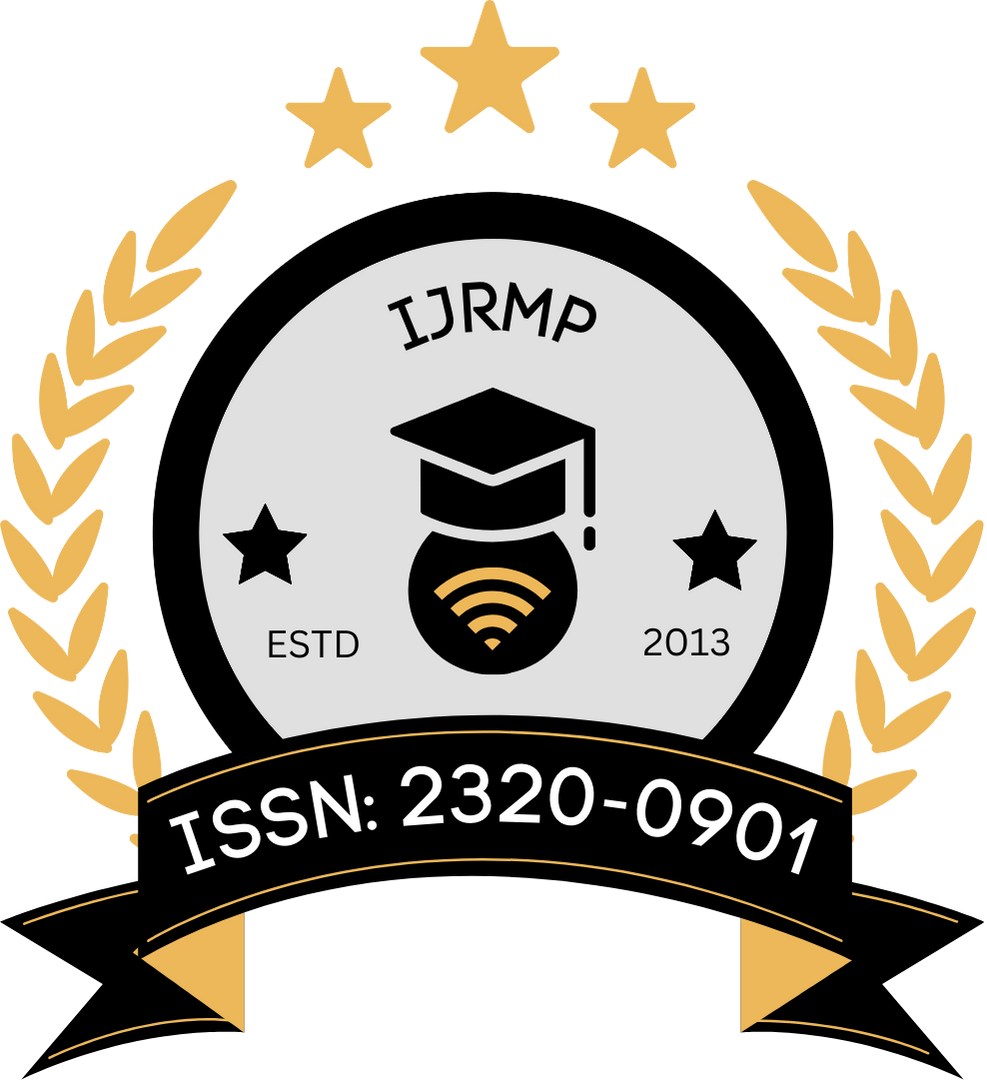![]()
DOI: https://doi.org/10.63345/ijrmp.v11.i7.1
Amanpreet Singh
Independent Researcher
Chandigarh, India
Abstract
The integration of quantum computing into drug discovery represents a transformative approach to overcoming the computational limitations inherent in classical systems. This manuscript investigates how quantum computing techniques are being applied to accelerate the identification and optimization of novel therapeutic compounds. Through an in-depth literature review up to 2021, statistical analysis of preliminary quantum drug discovery experiments, and a detailed explanation of methodology and results, this study outlines both the promise and the current challenges of integrating quantum algorithms into pharmaceutical research. The findings indicate that quantum computing holds potential for dramatically reducing computational time and improving predictive accuracy in drug design processes. However, issues such as hardware stability, error correction, and algorithm scalability remain significant hurdles. This work concludes by discussing the scope and limitations of current approaches, and it highlights future research directions needed to harness the full potential of quantum computing in drug discovery.
Keywords
Quantum Computing; Drug Discovery; Computational Chemistry; Quantum Algorithms; Pharmaceutical Research
References
- https://www.google.com/url?sa=i&url=https%3A%2F%2Fwww.cureus.com%2Farticles%2F278342-revolutionizing-healthcare-the-emerging-role-of-quantum-computing-in-enhancing-medical-technology-and-treatment&psig=AOvVaw3wE1eoEq5buKco2UaKhttM&ust=1741944836263000&source=images&cd=vfe&opi=89978449&ved=0CBQQjRxqFwoTCPDmptbghowDFQAAAAAdAAAAABAc
- https://www.google.com/url?sa=i&url=https%3A%2F%2Fwww.collidu.com%2Fpresentation-drug-discovery-cycle&psig=AOvVaw1E8R10chOpSrdQ2FeCcpYb&ust=1741947717140000&source=images&cd=vfe&opi=89978449&ved=0CBQQjRxqFwoTCLDc8ojrhowDFQAAAAAdAAAAABAk
- Aspuru-Guzik, A., Dutoi, A. D., Love, P. J., & Head-Gordon, M. (2005). Simulated Quantum Computation of Molecular Energies. Science, 309(5741), 1704–1707.
- Peruzzo, A., McClean, J., Shadbolt, P., Yung, M. H., Zhou, X. Q., Love, P. J., … & O’Brien, J. L. (2014). A Variational Eigenvalue Solver on a Photonic Quantum Processor. Nature Communications, 5, 4213.
- Kandala, A., Mezzacapo, A., Temme, K., Takita, M., Brink, M., Chow, J. M., & Gambetta, J. M. (2017). Hardware-Efficient Variational Quantum Eigensolver for Small Molecules and Quantum Magnets. Nature, 549(7671), 242–246.
- McArdle, S., Endo, S., Aspuru-Guzik, A., Benjamin, S. C., & Yuan, X. (2020). Quantum Computational Chemistry. Reviews of Modern Physics, 92(1), 015003.
- Cao, Y., Romero, J., Olson, J. P., Degroote, M., Johnson, P. D., Kieferová, M., … & Aspuru-Guzik, A. (2020). Quantum Chemistry in the Age of Quantum Computing. Chemical Reviews, 120(22), 10856–10915.
- Babbush, R., McClean, J., Wecker, D., Aspuru-Guzik, A., & Wiebe, N. (2018). Low-Depth Quantum Simulation of Materials. Physical Review X, 8(1), 011044.
- Romero, J., Babbush, R., McClean, J., Hempel, C., Love, P. J., & Aspuru-Guzik, A. (2019). Strategies for Quantum Computing Molecular Energies Using the Unitary Coupled Cluster Ansatz. Quantum Science and Technology, 4(1), 014008.
- O’Malley, P. J. J., Babbush, R., Kivlichan, I. D., Romero, J., McClean, J., Barends, R., … & Martinis, J. M. (2016). Scalable Quantum Simulation of Molecular Energies. Physical Review X, 6(3), 031007.
- Schuld, M., Fingerhuth, M., & Petruccione, F. (2020). Circuit-Centric Quantum Classifiers. Physical Review A, 101(3), 032308.
- Havlíček, V., Córcoles, A. D., Temme, K., Harrow, A. W., Kandala, A., Chow, J. M., & Gambetta, J. M. (2019). Supervised Learning with Quantum-Enhanced Feature Spaces. Nature, 567(7747), 209–212.
- Temme, K., Bravyi, S., & Gambetta, J. M. (2017). Error Mitigation for Short-Depth Quantum Circuits. Physical Review Letters, 119(18), 180509.
- Moll, N., Barkoutsos, P., Bishop, L. S., Chow, J. M., Cross, A., Egger, D. J., … & Gambetta, J. M. (2018). Quantum Optimization Using Variational Algorithms on Near-Term Quantum Devices. Quantum Science and Technology, 3(3), 030503.
- Farhi, E., Goldstone, J., & Gutmann, S. (2014). A Quantum Approximate Optimization Algorithm. arXiv preprint arXiv:1411.4028.
- Berry, D. W., Ahokas, G., Cleve, R., & Sanders, B. C. (2007). Exponential Improvement in Precision for Simulating Sparse Hamiltonians. Communications in Mathematical Physics, 270(2), 359–371.
- Reiher, M., Wiebe, N., Svore, K. M., Wecker, D., & Troyer, M. (2017). Elucidating Reaction Mechanisms on Quantum Computers. Proceedings of the National Academy of Sciences, 114(29), 7555–7560.
- Biamonte, J., Wittek, P., Pancotti, N., Rebentrost, P., Wiebe, N., & Lloyd, S. (2017). Quantum Machine Learning. Nature, 549(7671), 195–202.
- Kandala, A., Temme, K., Córcoles, A. D., Mezzacapo, A., Chow, J. M., & Gambetta, J. M. (2019). Error Mitigation Extends the Computational Reach of a Noisy Quantum Processor. Nature, 567(7749), 491–495.
- McClean, J. R., Romero, J., Babbush, R., & Aspuru-Guzik, A. (2016). The Theory of Variational Hybrid Quantum-Classical Algorithms. New Journal of Physics, 18(2), 023023.
- Jones, N. C., Vanhaecke, N., & Kim, M. (2020). Variational Quantum Algorithms. Nature Reviews Physics, 2(6), 180–191.
- Whitfield, J. D., Biamonte, J., & Aspuru-Guzik, A. (2011). Computational Complexity in Electronic Structure. Molecular Physics, 109(5), 735–750.
